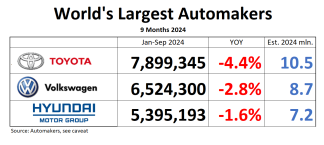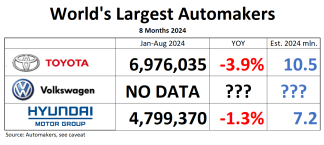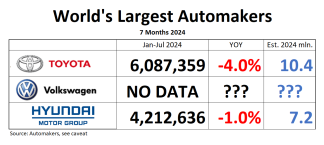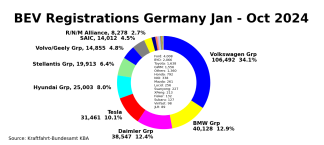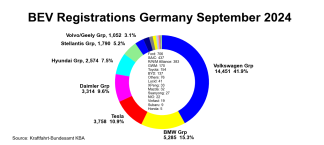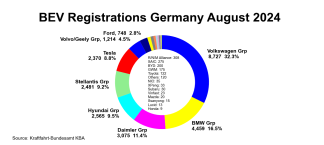These pages have been a bit skeptical about Tesla’s long term success. Not because its cars are bad – they aren’t – more because the car business is more complex than rocket science. What turns us into obsessing doubters is Elon Musk’s insistence to know better, and his propensity to step into the many traps this mature business offers. After ignoring laws that forbid factory outlets, after being way too lackadaisical with NHTSA regulators again and again, Tesla is now in trouble in the world’s biggest auto market, in allegedly the hotbed for electric cars, in China. What’s more, the trouble is most likely bigger than it looks.
“Tesla Motors Inc has started offering its poplar Model S sedans in China, but the U.S. premium electric carmaker has yet to give its brand a Chinese name due to a long-running trademark dispute,” Reuters reports.
The trouble is that “Te Si La”, the Chinese name under which the brand is known to Chinese, has been registered by a local businessman in 2006, and he refuses to hand it over.
Seasoned auto managers know: If you ever want to use a trademarked name in China, trademark it in China right away. Whereas most of the world follows the First Use doctrine, China is First To File territory. File it or lose it.
“China has rules that protect globally renowned brands, but that might not apply in the case of relatively new companies such as Tesla,” says Reuters.
Seasoned auto managers know: If you want to claim “well-known brand” status in China, you better be well-known in China. Even if you are, it will be a long, and costly battle.
Contrary to lore, China has hard rules on trademark protection, but they are Chinese rules, and you better play by them. If you are a serial rule ignorer, don’t enter China. China had a refined bureaucracy while most of the world was still in caves, and it shows.
Even if you win, you aren’t home yet. Red Bull fought for many years to get its trademark back in China, sued many times, won many times, the cases were appealed many times, the infringer even sued the trademark office. Last week in China, I still had a choice between two fake varieties of Red Bull, one (squat golden can) blatantly fake, the other nearly indistinguishable.
As I said, Tesla’s troubles have only started. Reuters says that a car without a name in Chinese is “a rare omission for global brands entering China.” That’s because the cars must have a name in Chinese.
Seasoned auto managers know: You may put whatever Western nameplate on the car, as long as it has a name in Chinese. Even I have a name in Chinese.
“Tesla has other problems in China,” says Reuters. “ In a letter to clients, it said that the price of Model S is not determined yet because China has not decided on its tax policies regarding imported electric cars.” That’s a polite way of saying that China doesn’t want imported electric cars.
Seasoned auto managers know: China wants electric cars to be built in China. Sure, you can import a few, as long as you commit to building them in China.
Seasoned auto managers know: To build a car in China, you need a joint venture with a Chinese joint venture partner. Even if you are willing to do that, you need a pile of permits that famously may or may not be issued. With both Daimler and Toyota as minority partners, Tesla’s request is likely to be nixed if Tesla is not wanted in China. A seasoned auto manager will say now: “Just ask Subaru.”
Even assuming that Tesla would secure a joint venture in China and make the cars in China, they could not be sold in China as Teslas. Which, in a perverse way, solves the name problem.
Seasoned auto managers know: To be sold in China, an electric vehicle must be Made in China, AND sold not just with a Chinese name, but under a Chinese BRAND, owned by the required Chinese joint venture.
This is a well-known, albeit unwritten rule. Seasoned auto managers live by it. To quote the rule out loud needs a very seasoned auto manager like Carlos Ghosn, who said at this year’s Tokyo Auto Show: “We make the Leaf in China under the Venucia brand because to get permits for expansion, you must do that in China.” Being entrenched in China with a joint venture partner Dongfeng that is owned by the central government, Nissan got a sweetheart deal. Other seasoned auto managers were forced to launch a SEPARATE Chinese brand for their Made in China EVs that are yet to catch on as big as promised.
As China Car Times reported, that Venucia will carry “E30” on one side. On the other side is the official Chinese name. It translates to “Morning Wind.” After a few beers at Maggie’s in Beijing, seasoned auto managers still slap backs, shouting “Morning Wind. Get it? Get it?”


